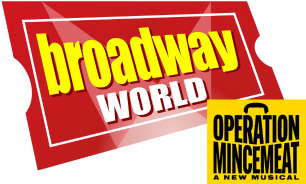West Moon Street: Quite a Crime
Oscar Wilde's pen gave the world some of the brightest, sharpest, funniest satirical comedies ever written for the stage. Blazing the trail for Coward and Wodehouse, Wilde's comedies were—and are—the perfect blend of farce, romance, wit, and genuine drama. It's no mistake, and no surprise, that The Importance of Being Earnest is widely considered one of the funniest plays in the English language.
But Wilde was not exclusively a playwright, and as the world has been denied a new Oscar Wilde comedy for more than a century, it seems only right to adapt one of his short stories for the stage. "Lord Arthur Savile's Crime" seems to fit right in with Earnest and Lady Windermere's Fan and An Ideal Husband as societal satire, and the story's mix of comedy and suspense seem ripe for the stage. And what better company to present this "new" Wilde play than Prospect Theatre Company, one of New York's most intelligent, cultured, and creative producing groups?
It is doubly heartbreaking, then, that the combined strengths of Wilde and Prospect Theatre Company fail to ignite any sparks in West Moon Street, a new adaptation by Rob Urbinati of the short story.
It seems unclear as to where the most fault lies: perhaps it is the story itself, which, justifiably, is not one of Wilde's most famous. The premise of an upper-class twit convinced by a palm-reader that he must murder someone—anyone—is not exactly the standard stuff of comedy, and does not provide many opportunities for grand farce. One plot device of poison concealed in a bon-bon might be a metaphor for this production itself: one needs some sweetness to balance the bitter, and the play's few comic quirks are not enough to compensate for such a shockingly nefarious story. Or perhaps it might lie in Urbinati's script, which struggles too hard to echo Wilde's original stage hits rather than stand on its own. Or perhaps the fault might lie in Davis McCallum's legato direction, which lacks the necessary rhythm that makes humor work. Some genuinely funny lines land with a thud when delivered off-beat, making the play all the more tragic.
The amiable cast does its best to keep the energy up, but with such a wan script and equally wan direction, most of the performances seem two-dimensional. Even farce needs strong characterization, and clichés lose their flavor rather quickly. Judith Hawking, as Lady Windermere, gnaws on the scenery for everything she's worth and manages to score some comic bullseyes, as does Glenn Peters as the curmudgeonly Lady Clem. David Ruffin is given far too little to do as Lord Arthur, and would probably shine with a stronger script. Lee Savage's economical set makes good use of the Hudson Guild Theatre stage, using several curtains to expose or conceal various parts of the space as needed, and a few well-chosen articles of furniture to indicate location.
While Prospect Theatre Company remains one of the brightest lights in the off-Broadway firmament, this production is an exception to their general rule of excellence. May their next play fare better.
Photo by Gerry Goodstein
Comments

Videos
